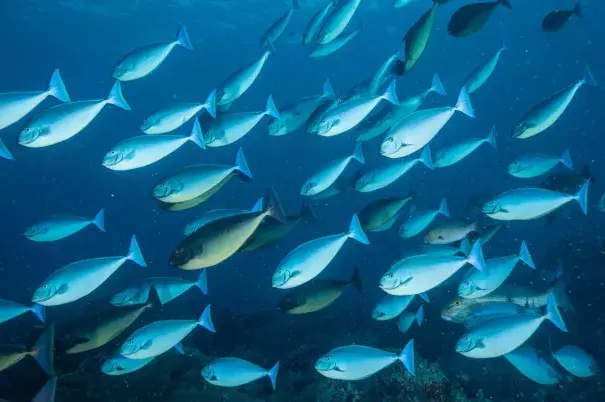Climate change is depleting our essential fisheries

A new study published Thursday in the journal Science outlines the impacts warming waters are having on commercially important fish species.
The world's fishing industry relies on what's called fisheries, the clusters of regional fish populations that people can catch economically. And on average, the researchers found that the numbers of fish in critical fisheries around the world have decreased by four percent since 1930.
Fisheries located in the Sea of Japan and the North Sea were the worst off. They experienced as much as a 35 percent drop in their numbers. Other fisheries, however, benefitted from warmer waters, and their populations grew, an expansion scientists warn could create unsustainable competition for resources.
...
Warmer waters can make some fisheries smaller by putting metabolic stress on the fish, making it harder for them to reproduce or find food. Warm waters can also cause zooplankton, essential fish food, to decline. The impacts on smaller organisms then have cascading impacts on the rest of the food chain.
In the North Sea and the Sea of Japan where they measured increased water temperature, scientists found overfishing had further made the fisheries even more vulnerable.
“It's like a one-two punch,” says study co-author Malin Pinksy, an ecologist at Rutgers. “If fishing already knocks them down, they're more likely to respond poorly when it's hot.”
Related Content



